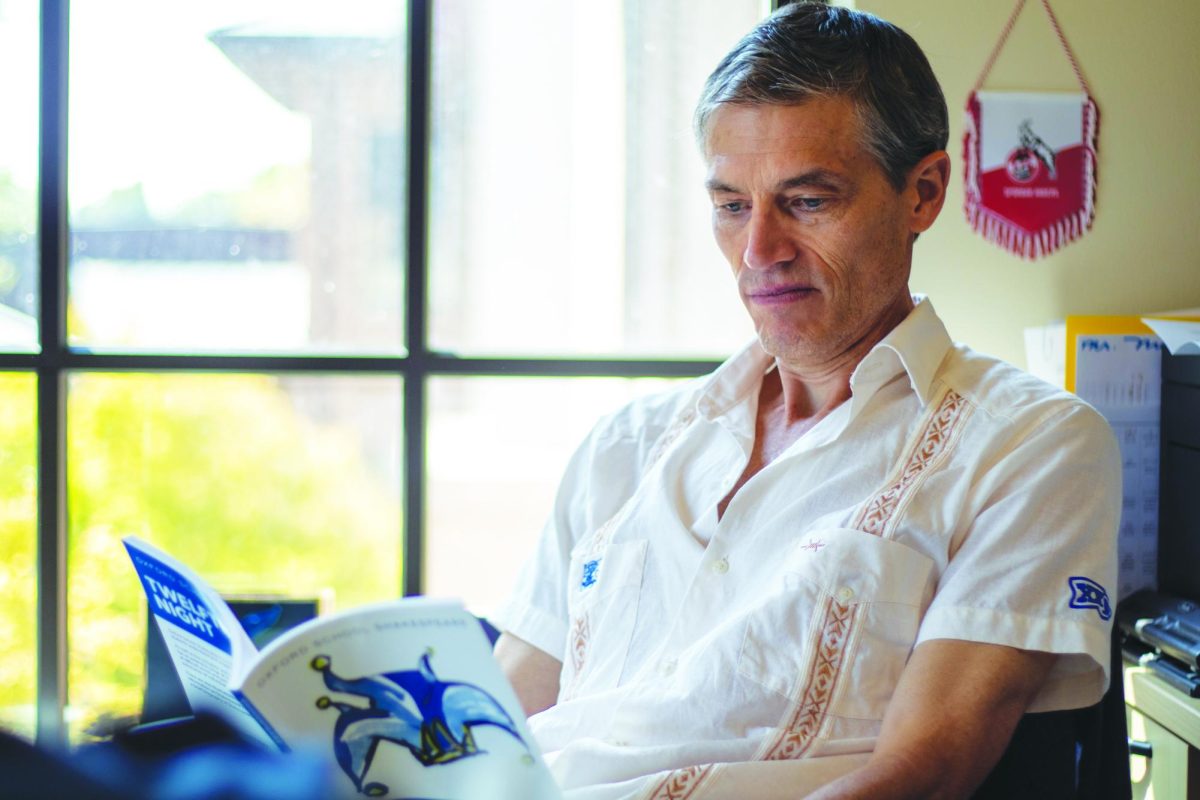During the three short months that summer offers, some students forget a year’s worth of teaching – as summer races by, math formulas, verb conjugations and vocabulary words disappear.
To combat this schoolwide slip, some teachers assign summer assignments to help students retain information from the previous year, as well as provide an introduction to the themes of next year’s curriculum.
However, many students procrastinate these assignments till the end of the summer, defeating the purpose of the assignment.
In order to prevent this effect, J.J. Connolly Master Teaching Chair and AP Spanish teacher Nancy Marmion assigns a series of blog posts for students to complete throughout the summer, hopefully eliminating the effect of putting them off until the last minute and helping to retain key grammatical and vocabulary topics.
“There was a change in the AP exam to a format similar to the one now, where it’s based a lot more on reading news items,” Marmion said. “And the reason that I give (AP Spanish students) that (assignment) about spreading it out over the summer is I found that the students came back much better prepared.”
Although the blog posts serve as a way to keep students from losing their language skills from the previous year, they also help students prepare for the AP exams in May by providing an overview of key topics tested.
“I think the most challenging part of the AP Spanish exam is that cultural comparison question where you have no idea what they’re going to ask you,” Marmion said. “The more you know about the Spanish speaking world, the more you can pull on that well of knowledge to answer that question. And so maybe it’s an article you read over the summer, maybe it’s something we did in class, but from that perspective, I think it just adds to (the skill set) students take to the exam.”
For Marmion, the work the boys put in during the summer is exemplified during the first couple classes of the year, when the summer reading assignments are discussed in class.
“One of the things I really like is that the second day of class where I have guys go into groups and talk about (their) articles, for the most part, I walk out of that class feeling like there was real communication going on,” Marmion said. “Guys could really explain in their own words these articles. They’ve learned vocabulary and content, without even realizing that they were necessarily doing that and the level of Spanish that I hear during those conversations, I walk out of there every year saying, ‘Wow.’”
While Marmion has been assigning summer reading assignments for years, Thomas B. Walker III ’73 Mathematics Department Chair Shane May recently introduced practice problems for students heading into Algebra II, trying to help students retain critical knowledge from the previous year of math.
“We want boys to have fun and relax (during the summer) because they work hard during the year at St. Mark’s. That being said, you lose some of your math knowledge over the summer,” May said. “Unfortunately, the Algebra II teachers say a lot of guys come (back) and they have not seen algebra not in two months, but in a year.”
The packet, however, is completely optional – boys have the option to work through a portion of it if they wish to. The goal of the packet is to reduce that transition time from summer to school and maximize learning during class.
“Maybe there’s two little sections you need to work on, and that’s fine,” May said. “The idea was if you had 10 weeks and you had a weakness, that’s a nice easy time to solve that issue rather than when you have six classes and time is limited.”
Similar to Marmion, English teacher Cameron Hillier ‘13 also avidly supports assigning summer reading.
“I think summer reading is great. I wish guys would do more summer reading on their own instead of what’s just assigned,” Hillier said. “Guys might actually find that it’s a good time to find books that are more in your strike zone.”
Like May, Hillier hopes students complete their work over the summer. He challenges Upper School students to resist seemingly unavoidable procrastination.
“Reading one book in three months is pretty doable, and writing work over the summer will take two out of 10 weeks,” Hillier said. “Pick up something you’re interested in and go for it. It’s a great time to do that. You don’t have any other homework, you know?”
As a more recent alum, Hillier understands the grievances of students. In fact, he admits he and his peers used to complain about summer reading too. However, he adds that when his students file into class and discuss summer reading, most admit they liked it.
“Students are always going to complain about summer reading,” Hillier said. “When I was a student, we complained about summer reading. It’s what you do. (But in) my junior and senior (classes), guys show up to class and they’re like ‘Okay, but it was actually pretty good.’”






